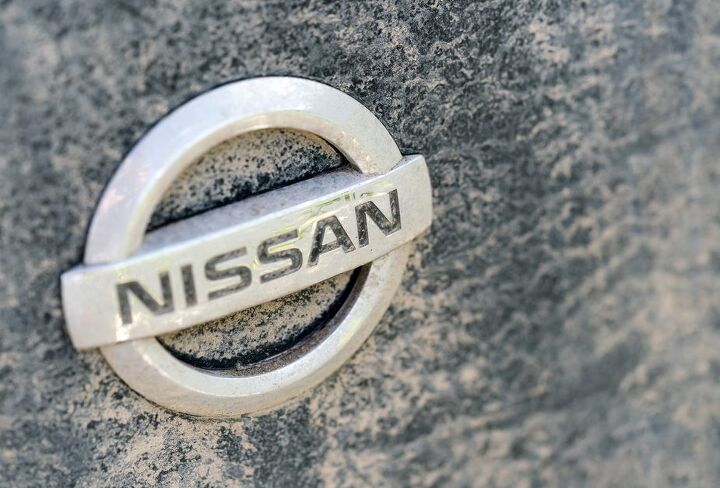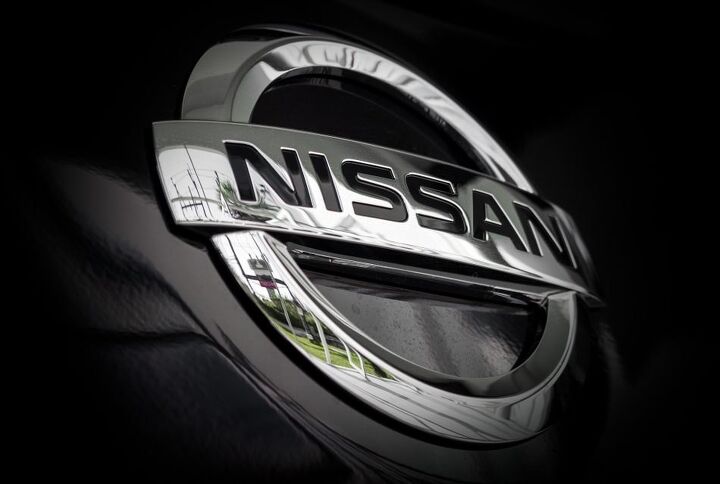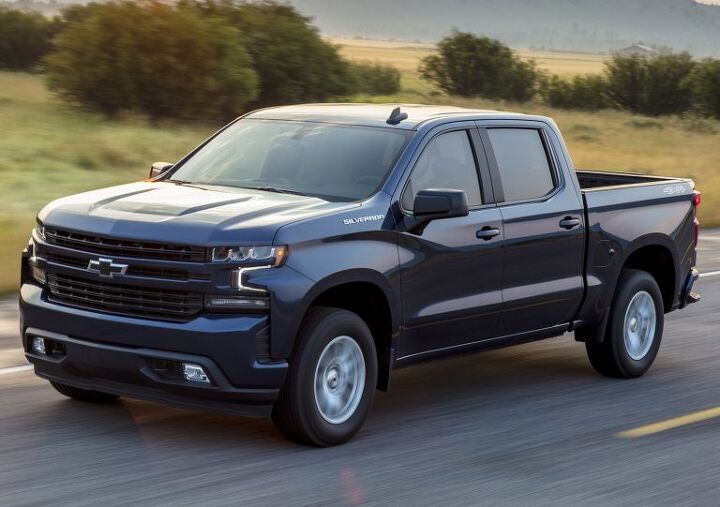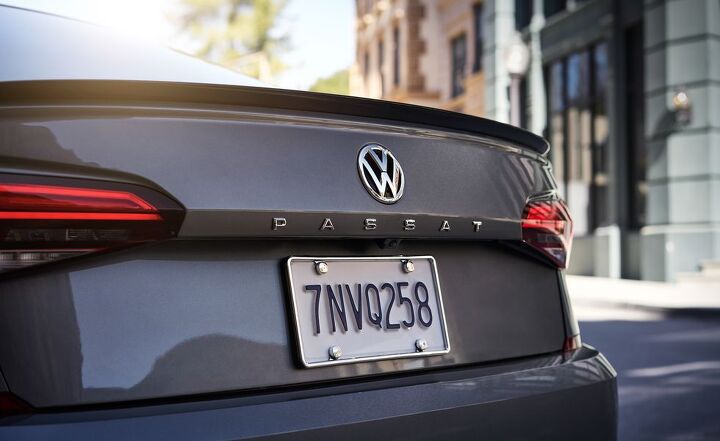#profits
Jaguar Land Rover Now Targeting $3.3 Billion in Cuts
Jaguar Land Rover has increased its savings target for the year to $3.3 billion (£2.5 billion) following a $540 million (£413 million) pre-tax loss for the quarter ending in June. Losses are hardly uncommon within an industry shaken by the pandemic, but JLR went into this year already confronting an uphill battle.
In 2019, the company was deep in the midst of a restructuring plan aiming at $2.5 billion in life-sustaining savings. Unfortunately, the move required the elimination of thousands of positions as it tried to imagine the effects of Brexit and contend with falling sales in its largest markets. That includes China, which the firm assumed would offer continued growth in the months leading up to coronavirus’ big debut and increasing political tensions between the Communist Party of China and United Kingdom.
Nissan Predicts Incredibly Lean Year, Plans Accordingly
Nissan’s all-important turnaround has been complicated immensely by the coronavirus pandemic. Supply chains fell into in shambles as countless factories temporarily closed as a countermeasure, harming profits as demand came to a screeching halt. Now there’s a looming recession that many economists fear may surpass the Great Depression — though this was a concern years before the COVID response hit the accelerator, thanks to growing debt and the way finance has been allowed to operate for decades.
Seeing the writing on the wall, many automakers have tamped down expectations for 2020. Being in the peculiar position of restructuring before the pandemic hit — which isn’t all that unique within the industry, truth be told — Nissan is reportedly plotting a 30 percent year-on-year cut in global production.
Have You Heard About the Coronavirus Being Bad for the Economy Yet?
As we attempt to wean ourselves off endless discussions the new coronavirus, we’ve noticed there’s not exactly a glut of alternative news out there. Trade shows are being delayed, factories are being idled, and the whole world seems to be in standby mode as we attempt to stall the spread of COVID-19 following its migration out of China.
Regional quarantines in Asia were already doing a number on supply chains, and it wasn’t long before manufacturers around the world began idling production to further slow the virus’s spread. By the beginning of March, it was becoming quite clear that auto sales would suffer significant impacts as people spent the next several weeks isolated in their own homes. Now, the push is on to assess just how much this whole ordeal will impact an OEM’s bottom line.
Nissan's Finances Still in the Toilet
Fulfilling earlier promises that the company had hit a wall and might require several years to recover, Nissan reported a 70-percent decline in quarterly operating profit on Tuesday. It also pulled back its full-year operating profit forecast by 35 percent to 150 billion yen, representing the automaker’s worst annual performance in 11 years. The business now expects to see global retail volume somewhere around 5.2 million vehicles (down from estimates 5.5 million).
“We are revisiting all our assumptions, and as you can see that is why we revised down our forecast for sales volume for the full year,” incoming CFO Stephen Ma explained to Reuters after releasing its first-half results for 2019 (ending September 30th). That was swiftly followed by the announcement of an extraordinary shareholders meeting to decide on proposals for current directors leaving their positions ( Hiroto Saikawa, Yasuhiro Yamauchi, Thierry Bolloré) and the new director nominees.
Geely Sees 40 Percent Profit Slip Over First Half of 2019
China’s Geely Automobile Holdings Ltd said on Wednesday that its first-half net profit slipped 40 percent due to the extended economic downturn impacting in the region. According to Reuters, the manufacturer posted a net profit of 4.01 billion yuan ($568.5 million) during the most recent half vs the 6.67 billion yuan it made over the same period a year earlier.
Sales growth is also down. Between January and June, Geely sold 651,680 vehicles — roughly 15 percent less than in the same period in 2018. Finding something to attribute that to will be easy, however. China’s automotive market has been on a downhill slope for 13 consecutive months and we know of at least two reasons why.
FCA Says Maserati Will Remain Unprofitable Until Post-2020 Product Offensive
Maserati posted an ugly financial report for the second quarter of 2019. Revenue was down 40 percent, resulting in a loss of $132 million before interest and taxes. The good news, according to Fiat Chrysler Automobiles, is that the brand will become profitable once new product hits the ground.
The bad news? None of those vehicles are scheduled to arrive until after 2020, meaning Maserati probably won’t see any improvements until sometime afterward. FCA CEO Mike Manley has already said the rest of 2019 will be ugly for the brand, though he remains hopeful that the 10 new or refreshed vehicles the premium nameplate had in the works would help it turn a corner.
Aston Martin Has a Few Problems
Keen to expand into new segments and redefine itself as an auto brand, Aston Marin is now a publicly traded company with a crossover vehicle on the horizon. The plan, established by CEO Andy Palmer and about as novel as dirt, was due for a checkup last week. Sadly, the automaker was not released with a clean bill of health. Aston reported a pre-tax loss of £78.8 million ($92 million) in the six months ending in June.
Speaking with the media, Palmer argued that the company had done well in the first quarter but claimed economic conditions and dwindling dealer interest had hurt the business in Europe, the Middle East and Africa. The United States performed comparatively better — possibly due to the marque bringing on Tom Brady as a brand ambassador, even though at least two of the cars built with the athlete’s name on them have already passed through the secondhand market $100,000 below sticker. Unfortunately, minor victories weren’t nearly enough to keep the firm’s share price from tumbling downward like an allegedly deflated football.
Moody's Downgrades Nissan's Credit Ranking; You Probably Know Why
Save for one article about adorable baby ducks, we’ve dumped on Nissan all week. Circumstances being what they are, there wasn’t much of an alternative.
Between a dismal earnings report showcasing a 45 percent decline in annual operating profit for the year ending in March, a forecasted 28 percent drop in profits for this year, corporate strife between the automaker and top shareholder Renault SA, and the ongoing legal troubles with former chairman Carlos Ghosn, it’s been a bad few months.
Nissan’s share price is also in decline for some strange reason, and, following a negative outlook from S&P, Moody’s downgraded the automaker’s credit rating from an A2 to an A3. That’s right, one entire notch lower. That clinches it. Nissan is officially done forever. If the 2008 financial crisis has taught us anything, it’s that you can absolutely trust rating agencies to be arbiters of the future.
Ford Plans to Cut More UK Jobs in European Restructuring
Having already announced plans to cut thousands of jobs in Europe in an effort to stem the region’s ongoing cash hemorrhage, Ford has reportedly begun re-examining the United Kingdom. Initially, the automaker’s restructuring plan involved ending production at a transmission plant in France, killing the C-Max in Germany, and dissolving its Ford-Sollers joint venture in Russia.
While Ford hoped to shed as many employees as possible through voluntary retirement, it acknowledged it would have to fire at least 5,000 people in Germany and an unspecified number of U.K. citizens in March. The company hasn’t settled on a figure, though inside sources claim it should be no more than 550 jobs — all of which should be of the non-manufacturing variety.
Subaru Struggles: Annual Profit Effectively Halved Due to Quality Control Issues
Subaru may be getting too big for its britches. Despite seeming like it was positioned for nearly incalculable growth at the start of last year, the automaker’s latest financial report showed the period was actually plagued with problems. Over the full fiscal year, which ends on March 31st for Subaru, the company basically showed that its operating profit had been cut in half.
How could this have happened? Subaru’s commitment to all-wheel drive has given its sales a shot in the arm as the crossover craze has escalated and it has one of the best reputations in the business. Seriously, ask any automotive layperson what they think of the brand and they will almost always have something positive to say. However, for all of its presumed advantages, the company is reporting a 48.5-percent decline in operating profit (to 195.5 billion yen) and a 6.3-precent loss of global sales volume.
GM Reports Profit Boost As Sales, Market Share Shrinks
General Motors’ first-quarter earnings report revealed turmoil in international markets and a shrinking presence in North America, but net income rose to $2.1 billion, up from $1.1 billion a year ago, and adjusted earnings per share ($1.41) beat out estimates of $1.11. Still, that wasn’t enough to stop its stock from sliding in pre-market trading, as revenue of $34.9 billion undercut analyst estimates of $35.28 billion. Pre-tax earnings fell 11 percent.
In its report, GM wanted to talk about trucks. You know the ones — the revamped 2019 Silverado and Sierra 1500 crew cabs, now featured in half of the pop-up ads on your author’s computer and phone, advertising 0% financing.
Ford's Earnings Show That Saving Money Can Be Expensive
Automakers find themselves a bit of a pickle right now. The shift towards “mobility” has resulted in high development costs for electric and autonomous vehicles in the midst of stagnating sales growth. There’s also a trade war hurting global demand and impacting supply chains. Ultimately, this resulted in a lackluster Q1 for many manufacturers.
Ford’s situation was symbolic of the industry’s general plight, per its 34-percent decline in net revenue for the first quarter of 2019, but it wasn’t without a warm ray of hope. The company posted a 12-percent increase in earnings (before before interest and taxes) over the same period due to North America’s consistent desire to own SUVs, crossovers, and pickups. Ford’s share price also improved, hitting the $10 mark for the first time since August of 2018 on Friday.
With all that good news, many probably wonder what caused net revenue to climb into the toilet like an overly curious ferret. As it turns out, saving money can be pretty expensive.
Dealer Check-up Reveals Widespread Profit Loss
U.S. light-vehicle dealers reported an operating loss for the first time since the National Automobile Dealers Association (NADA) began collecting data in 2009. While everyone continues reporting pretax net profits, concerns are beginning to swell around their dependency on factory incentives, which are not included in operating tabulations.
NADA’s analysis of 2019’s first-quarter auto sales shows that incentive spending is down compared to the same period a year ago. The group expects above-average discipline from automakers in terms of incentive spending throughout the year. According to J.D. Power, average incentive spending per unit was down $119 to $3,821 through March 2019 — with the brunt of that going toward trucks. However, if sales remain low, spending may creep back up to help clear out languishing inventories.
Greener, but Leaner: It's Volkswagen's Turn to Cut Jobs
Volkswagen Group just announced a restructuring plan aimed at raising the company’s operating margin to 6 percent. Unfortunately, the strategy involves a staffing reduction of up to 7,000 individuals by 2023 — with the automaker saving an estimated 5.9 billion euros in the process.
While legitimate layoffs aren’t expected to take place for at least a few more years, VW claims the “automation of routine tasks” will make the jobs unnecessary, adding that the staffing cuts could be done by simply not replacing employees who take an early retirement package.
Subaru's Sales Success Comes With a Big Side of Trouble
Subaru’s sales in the United States effectively tripled in the past decade, making it the most important market for the brand by a wide margin. However, the automaker has had to expend quite a bit of energy in its home country of Japan to address recalls and regulatory scandals over the last few years.
While the duality hasn’t caused issues on a global scale, many observers wonder how long its good fortune will last. In America, Subaru is a feel-good brand that uses love as a core marketing concept to improve sales. In Japan, it has become synonymous with overworking employees lacking compensation, regulatory scandals, sudden work stoppages, and recalls. Many believe it’s only a matter of time before Subaru of America will have to contend with Japan’s issues, and evidence exists that problems are already beginning to surface in the West.





























Recent Comments